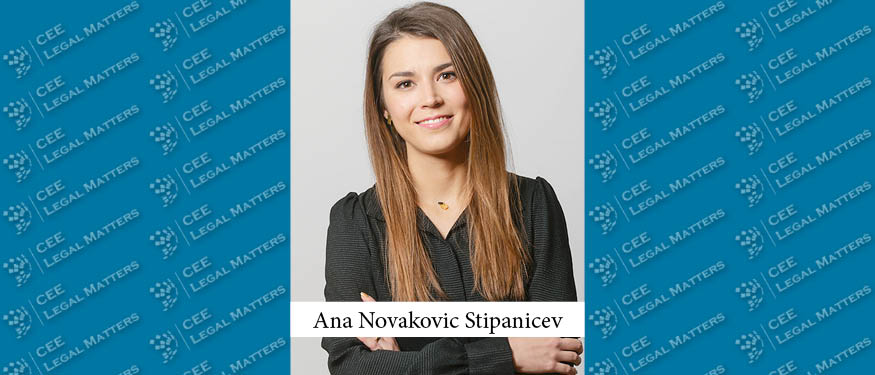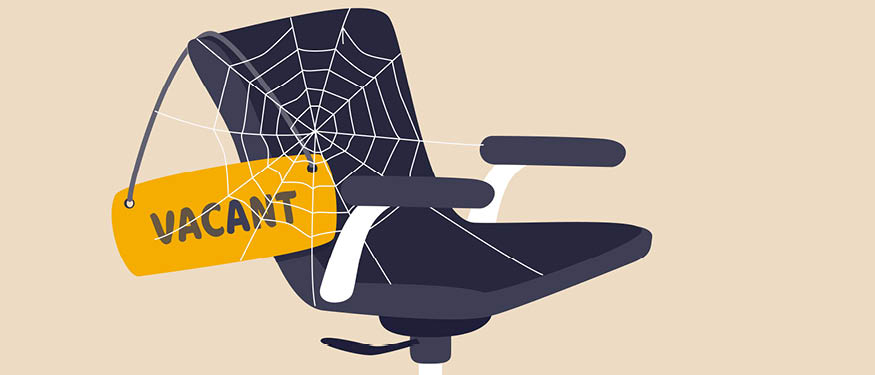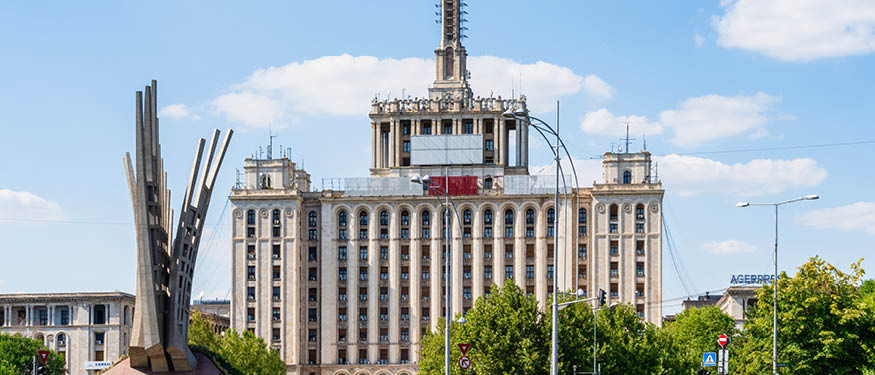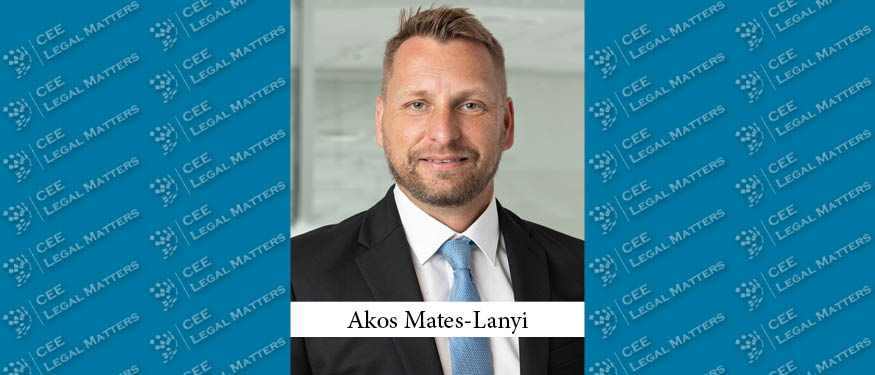Against the backdrop of concerns that changes in technology may cost law firms jobs come reports that law firms in Slovakia are having trouble finding the skilled law school graduates to fill their associate ranks. Whether because of a decrease in the perceived attractiveness of a career in a law firm, a prolonged mandatory traineeship period, or some other reason, many see a serious problem developing.
A Noticeable Change
Veronika Pazmanyova, the Head of the Slovak office of Glatzova & Co., says the problem affected her recent efforts to expand her team. “While we had couple of great candidates for mid-level and senior associates and for students looking for part-time legal jobs, we struggled to find junior associates,” she says. “Ten years ago, we would have had hundreds of CVs for this type of position. Now we received only around twenty.”
And the change in the level of interest was apparent even among those that did apply, Pazmanyova says. “Some of the candidates didn’t even show up for arranged interviews or get back to us – and we hear similar stories from other law firms. This is despite the attractive package being offered.”
This transformation in the market is puzzling, Pazmanyova says, as good opportunities abound. “The legal market is doing well in general,” she reports. “Our law firm doubled its revenue over the past three years, which forced us to expand our team – but it took a lot of effort to find the right candidates.” In short, she sighs, “there is great demand for good lawyers on the market, but there are fewer and fewer motivated law school graduates.”
Andrea Erdosova, Vice Dean for the Bachelors and Masters Studies at the Faculty of Law of Bratislava’s Pan European University, also sees “less quality and less motivation” among fresh law school graduates, even though she believes an increasing number of law firms in Slovakia means that “the possibilities to find a good job really exist.” But young lawyers are less interested in working at law firms
than before, she says, due to the demanding law firm environment and what she describes as low pay for the first few years of practice.
Not everyone is put off by that environment, of course, and Erdosova is quick to point to the graduates from her school who are excited about law firm opportunities. “It depends on the personality,” she says. “I have dozens of examples of young highly motivated, smart, and hardworking graduates, who perceive being a good lawyer as a mission, not just a job.”
Slovakia’s Extended Traineeship
In addition to the high number of hours demanded of young lawyers, many point to the Slovak Bar Association’s 2013 extending of the mandatory traineeship period from three years to five (described extensively in a special report in the October 2014 issue of the CEE Legal Matters magazine) as a reason for the decreased number of private practitioners coming out of Slovak law schools.
Roman Vydra, a legal trainee in the Bratislava office of the BBH law firm, says the extended traineeship period was felt acutely in his class. “When the extension was just introduced nobody knew where it would lead us,” he says. “It caught many students by surprise, including me.” He suggests the result was impossible to deny. “We are already seeing the consequences, and I am afraid the real impact will be felt dramatically in the upcoming years, because current students are already aware of the situation and that has impacted on quality and quantity of students, significantly decreasing its number.”
In addition to requiring all would-be lawyers to commit another two years to their traineeship before passing the Bar, many believe the five year traineeship period imposes a particular burden on young female lawyers. As Martin Magal, Partner at Allen & Overy in Bratislava, explains, “many young women choose not to go down that road, as they would have to invest a lot of time in establishing their reputation and career and then either take a break to have a family or really sacrifice their private lives and pursue their career, which most are unwilling to do.”
Majernik & Mihalikova Partner Katarina Mihalikova does not mince her words. “In my view it discriminates against women.”
The declared goal of the Slovak Bar Association in extending the traineeship period was to improve the quality of attorneys in the country. According to Andrea Erdosova, “the Slovak Bar Association claimed that the three year traineeship was not enough, as many of the [law firms] did not provide the proper preparation to trainees to help them pass very difficult exams, nor to prepare them for the demanding profession.”
Martin Magal believes that the change implemented by the Bar Association was necessary – and he be suggests that, if the current dearth of quality lawyers coming out of law school is the result, it may be a good thing. “We saw an unhealthy influx of new lawyers that started 15 years ago and lasted for a decade, and supply by far exceeded the needs of the market,” he says. “The current situation could be perceived as a correction of the unhealthy recent past, and the numbers we are starting to see now are a more accurate reflection of the market’s needs.”
In any event, Magal doesn’t believe the shrinking supply of quality young lawyers is properly attributed to the extended trainee period. “Those who are more determined to become advocates and to be in a private practice will do whatever it takes to achieve that goal,” he says. “So at the end of the five-year period, you will have young attorneys who are more knowledgeable and passionate about the work.” Viewed properly, he proposes, the extended traineeship period simply weeds out those who aren’t serious about a law firm career to begin with. “Three years looks like an interesting alternative and a trial period. You cannot have the same attitude with a five-year traineeship period.”
Roman Vydra, who was among the first to face the five year traineeship, and who acknowledges that the traineeship extension may have dissuaded some of his classmates from pursuing a career in private practice, agrees that the difference between three and five years is ultimately not significant. “If you want to do this job for the rest of your life, this change should not impact your choice of studying law. Thus, even if the traineeship were seven years I would still do it.”
In addition, Vydra says, the extended traineeship period doesn’t affect the ability of young lawyers to do good work anyway. “From my experience, if you are good enough and you perform well, you can have a good position at a firm and do responsible and interesting work, even if you are formally just a trainee,” he says. “This does not really matter, because your performance is what matters at law firms – not the status.” He points out that, although he will only complete his traineeship in the fall and take the Bar exam in winter, at BBH he already holds the position of Senior Associate.
Finally, while noting the problematic nature of the extended traineeship on women, Erdosova evinces a similar skepticism about its affect on the market for young lawyers overall. “To become a good attorney is not a question of the length of the practice, as the whole professional life might not be enough if you are not personally built and ready to perform for it. There are many other instruments to raise the quality of the preparation than the length of the traineeship.”
Educational and Professional Opportunities Across the Border
Some believe the declining numbers of quality young law school graduates is more properly attributed to the better educational and professional opportunities waiting for Slovak law students across the border in the Czech Republic. Slovak Jana Vydrova, a corporate associate at Allen & Overy in Prague, reports that she conducted research on the quality of law schools in Slovakia and the surrounding CEE countries before deciding where to study. She says her choice of Charles University in Prague – she received her Master’s degree from that Czech university in 2011 – ultimately was based on its reputation, its curriculum, and its support system for students, as well as what she believes are its more attractive partner universities (such as the University of Sheffield in England, where she spent one year). After considering all these factors, she reports, “studying in the Czech Republic was an easy decision.”
Financial concerns do not play a significant role in that analysis, as Slovak students are able to attend Czech universities on the same financial terms as their Czech classmates. According to Vydrova, “if you study in the Czech language, you don’t have to pay tuition in the Czech Republic.” In fact, in 2001, based on the 1997 Convention on the Recognition of Qualifications Concerning Higher Education in the European Region, an intergovernmental agreement was signed asserting the Mutual Recognition of the Equality of Educational Documents issued in the Czech Republic and Slovak Republic, guaranteeing the same conditions for Slovaks in the Czech Republic in studies and admissions, allowing Vydrova to say, “Slovak and local students are treated the same in this respect.”
With financial concerns put aside, many believe the quality of legal education to be better in the country to the west. Timotej Usak is another Slovak who chose to study in the Czech Republic – in his case at Masaryk University in Brno. “The reason I decided not to study in Slovakia,” he says, “was that I thought – and I still think – that the quality of Czech universities compared to the Slovak ones is much higher, which can be proven by university ranking within the top 500 universities worldwide.” Indeed, according to the US News and World Report’s 2018 Best Global Universities ranking, three Czech universities are listed among the top 500 worldwide (Charles University at #196, Czech Technical University at #410, and Palacky University Olomouc at #479), while no Slovakian universities make the list.
Slovak lawyer Katarina Mihalikova affirms the appeal of the law schools across the border. “Czech universities offer better education, a hands-on approach, and qualified teachers” she says. “All these combined together, and given the proximity of the languages and the proximity of the legal order in the past, attracted many Slovak lawyers.”
Unsurprisingly, Andrea Erdosova, at Bratislava’s Pan European University, resists the claim that Czech universities are better, as evidenced, she says, by the Czech nationals who choose to study in Slovakia. “We count a fairly large number of Czech students in our Pan European University – they like the dynamics of the private law school, they like Bratislava with its great location and a friendly environment of still existing common spirit of the historical federation (the former common state) and, let’s say, the brotherhood between the nation of Czechs and Slovaks.”
Perhaps. Still, many believe that, after studying in Czech universities, it is inevitable that many Slovaks will choose to stay in the country on Slovakia’s western border. As Mihalikova notes, “once they start building up a professional career through studying in the Czech Republic, it makes sense to look for jobs there after graduation.”
Vydrova agrees, reflecting on her own path. “It was pretty natural at that time to stay in the Czech Republic, as I already had network and practical experience here.” Internships are part of the process, she says, noting that she worked in the legal profession during her studies, and that “played a role as well.” Ultimately, she says, “There are more job opportunities for graduates and qualified lawyers in the private sector in the Czech Republic, mainly due to the size of the market.”
Roman Vydra puts is simply. “Prague is a big and multinational legal market, which is developed much more than Slovakia,” he says. “After Prague, Bratislava is too small.”
And the Czech legal market is larger, and offers more offices of international law firms – with at least 11 offices of law firms based in the US, UK, or Germany – than its Slovakian counterpart, which offers only six. “It is a regional hub for many companies, [and] the opportunities and competition are much higher,” Mihalikova says. “Given the size of the market, the salaries might be much higher and cost of living are comparable.”
But Martin Magal expressed skepticism that there’s a new trend of Slovak lawyers working in the Czech capital that can account for the current dearth of quality fresh graduates in Slovakia. “Czech colleagues are always complaining about the ‘invasion,’ but this has been happening for the last 30-40 years,” he says. “You can easily find 50-year-old Slovak lawyers working in Prague.”
And as Magal notes, most Slovakian lawyers stay at home. “They are well-aware of the fact that the grass is not necessarily greener on the other side. They want to stay closer to home by setting up the basis for their career where their families’ roots are.”
In fact, of course, the fact that the two countries share a border makes it possible to be simultaneously abroad and close to home. Indeed, Roman Vydra explains that his decision to study in Brno was influenced by its proximity to his home. “It was rather a geographical decision,” he says. “I wanted to stay in touch with my home, where I had personal connections: family and friends. Brno was a compromise: getting a Czech quality education but being only one and half hours from home by train.”
Political Considerations
Of course, there are other factors influencing student decisions beyond Slovakia’s extended traineeship period and the potentially superior educational and professional opportunities in the Czech Republic. Timotej Usak, who moved to Prague after graduating from Masaryk University in Brno this year, pointed to the continuing fall-out from the February 25 killings of Slovak journalist Jan Kuciak and his fiancee, which – among other things – led to the Slovak Prime Minister’s resignation. “One of the reasons [for my move] is the political factor, as the situation in Slovakia is extremely bad. I have a feeling there is a motion to sweep everything under the rug. So, for me there is no motivation to go back to such a country.”
Reversing the Change
There’s no suggestion the situation is irrevocable, of course, and according to Glatzova & Co.’s Veronika Pazmanyova, many are calling for the traineeship period to be put back to its previous three-year form, although, she says, despite “several initiatives to achieve it, [there is] no real political will yet.” She, for one, hopes those calls are heard. “Changing it [traineeship] back would help the legal market. I don’t think lawyers should be afraid of a little competition.” She insists that, instead of pushing law students away from the profession, it is up to law firms to adapt to the changing requirements of young people about to enter the market. “Their sense of purpose and ethical values may shape the way business is done around the world in the future,” she says.
Katarina Mihalikova also believes the current dearth of quality law school graduates seeking to enter the legal profession can be fixed by shortening the traineeship period, but she points to a need to improve the country’s educational system as well – though she concedes that “it is not an easy and quick solution.”
Conclusion
Ebbs and flows in the market for good young lawyers are hardly uncommon, and trying to parse the reasons for changing interests and motivations in fresh graduates is an imprecise science, at best. In Slovakia, at least, the market is ebbing … and that science is a subject of hot conversation.
This Article was originally published in Issue 5.6 of the CEE Legal Matters Magazine. If you would like to receive a hard copy of the magazine, you can subscribe here.






















